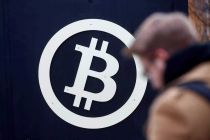Almost one week after initiating, one of the largest, strangest experiments in global crypto governance hesitated as it neared its culmination.
While EOS, a new blockchain created by Block.One, which raised approximately $4 billion to build it over the past year, had effectively turned the code over to its users as of last Saturday, into Friday, the fruits of that effort suggest a lack of clear process is holding back progress.
At least two votes that could have ended with a version of the software launching actually took place (based on CoinDesk's view of an unofficial stream of the decision-making). Assembled were candidates vying to become EOS "block producers," or the entities able to process transactions and claim the network's rewards.
The first vote was deemed invalid, but it had enough votes for a "go." The second was deemed valid, but it failed to meet the agreed-upon threshold for launch.
Still, expectations are high for the next launch vote in the coming hours.
Here's what we know:
All indications suggest its members are very likely to vote "go" at the next meeting, which begins at 1:00 UTC.
That meeting should be livestreamed on EOS GO's YouTube channel, according to EOS New York.
EMLG holds a "go-no go" vote at a meeting that happens every 24 hours. The vote to go has to reach a threshold of two-thirds-plus-one of validator candidate organizations present. When a "go" vote happens, the network should go live in approximately 12 hours.
The chain will be declared active after 15 percent of token holdings have been voted to establish the first set of 21 block producers.
Changes on the ground
As profiled by CoinDesk, one of the unanswered questions surrounding the project was just how EOS block producers would be chosen and what influence they would have on the process. Already, this has reared itself in surprising ways (with groups jockeying for bigger roles).
The organization leading that launch is the EOS Mainnet Launch Group (EMLG), a coalition of groups who have set themselves up to be block producers.
Once live, EOS holders will vote on which candidates get a spot as a block producer. There will be 21 block producers, and they will be paid out through inflation in EOS tokens (much like bitcoin's miners). But, there may be as many as 200 groups vying for one of those spots.
So, even if the idea competing softwares could be created has been ruled out, there's still a decent amount of uncertainty.
For example, a validator candidate out of Hong Kong posted an update of the call on Twitter last night, which shows some of the other issues discussed before the vote.
In the EOS New York Telegram channel, after the vote, a leader in the group, Kevin Rose, wrote the following:
"Here is what happened: the voting process was an absolute mess. We need to create a process. Beyond that, Dan [Larimer] introduced doubt when he questioned going live without EOSIO 1.0.2 being released.
Because the voting was a mess, we don't understand what the reasons for 'no-go' were."
The EMLG held a check-in meeting this morning as it prepared voting for tonight's meeting.
Voting trouble
Central banks aren't ready – at least in the short-term – to handle the implications of launching wholly digital currencies, the deputy governor of the Bank of Italy said Thursday.
Fabio Panetta delivered the keynote address for the SUERF and BAFFI CAREFIN Centre Conference held at Bocconi University. In his remarks, he became the latest to discuss the possibility for central banks to issue currencies digitally, including those that incorporate elements of cryptocurrencies like bitcoin or some of the concepts that underpin blockchain.
At the same time, Panetta began his keynote by distancing the conversation from cryptocurrencies.
He was quoted as saying (according to a transcript of his remarks published by the Bank of International Settlements):
"In fact - just like banknotes - a [central bank digital currency (CBDC)] would be a liability of the central bank and would be backed by its assets. It would be supported by the credibility of the central bank and ultimately, by the rule of law. Crypto-assets, on the other hand, are a liability belonging to nobody: there is no asset that backs them up and no clear governance structure that can guarantee trust… the value of a CBDC would not suffer from the excessive volatility that affects crypto-assets."
Of course, by this logic, CBDCs would continue to suffer from the same volatility created by the potential for government intervention on monetary policy, a concern that has been previously linked as a cause for individuals seeking out crypto-assets like bitcoin.
Knowns and unknowns
Panetta did point out other advantages of CBDCs, though.
For example, he highlighted the lower costs of managing digital currency as opposed to a physically distributed currency.
"Since it would be completely dematerialized, a CBDC would have very few or no storage costs and would be a convenient way for households and firms to keep liquid wealth. Mattresses could be freed from their role of vaults!"
Moreover, CBDCs would be an asset "free of credit and liquidity risk."
Such effects in his view would not "necessarily be disruptive for banks." However, a number of other key issues surrounding digital currencies very well might.
For example, Panetta asked whether digital currencies should be traceable or "designed to guarantee, to the extent possible, anonymity." On this, he raised ethical concern for a future where banks are able to trace all consumer transactions and make decisions on an individual's creditworthiness based on such information.
"If central banks decided to make an asset – the CBDC – free of credit and liquidity risk, possibly remunerated, and available to anybody at no cost, their role in the economy would fundamentally change… Are central banks ready to play this new role and to deal with the attendant complexities? In the short term my answer is no."
In the long term, the answer is unclear but Panetta affirmed the benefits of research to uncover the answer are certain and, "here to stay, independently of whether one day we will live in a world with digital cash."










